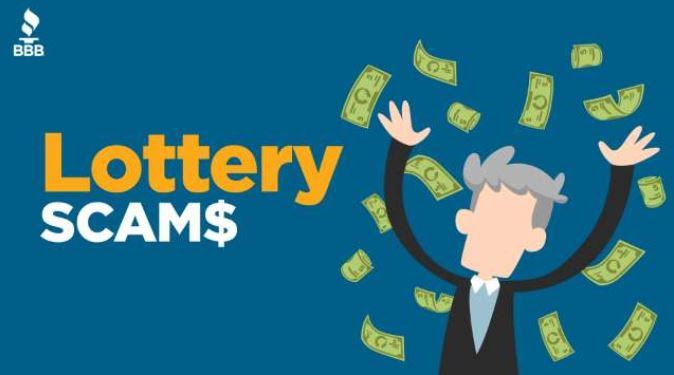
Lottery fever is in full swing across the United States with tonight's drawing of the Mega Millions jackpot which has surpassed one billion dollars.
With everyone's eyes on the prize, consumers may not be thinking about protecting their wallets from fraud. A recent report by Better Business Bureau (BBB) says sweepstakes, lottery and prize schemes are devastating victims financially and emotionally with their ever-evolving methods. These frauds contact consumers through direct mail, cold calling, social media, text messages and smartphone pop-ups. They claim that the consumer has won a prize but must first pay a fee to receive it.
The report notes these scams bilked $117 million out of half a million Americans and Canadians in 2017 alone, with actual victims and losses likely numbering much higher. BBB received 2,820 sweepstakes and lottery scam reports in Scam Tracker in 2017, with a median loss of $500. Wire transfers were the most frequent method of payment.
The majority of lottery or sweepstakes scam victims are 65–74 years old. Among that age group, people who recently experienced a serious negative life event, and who expect their income in the near future to remain steady or decline, are even more likely to be victimized.
BBB offers the following tips for consumers to avoid being caught in lottery or sweepstakes fraud:
- Don't pay up to claim your prize: You should never have to pay money or buy products in order to receive a prize. Be especially wary of wiring money or using a prepaid debit card.
- You can't win a contest you didn't enter: You need to buy a ticket or complete an application to participate in a contest or lottery. Be very careful if you've been selected as a winner for a contest you never entered.
- Verify—but not by using a source scammers give you. Check if an offer is real, but don't call the phone number in the email or website you suspect may be a scam. If it is a con, chances are the person on the other line will be involved too. Call the lottery or sweepstakes company directly to see if you won.
- The only legal lotteries in the United States are the official state-run lotteries. Foreign lotteries are illegal.
- Do an internet search. Search online for the name of the company or phone number of the person who contacted you. You may see results of others claiming to have been scammed in the same situation.
- Law enforcement does not call and award prizes. Law enforcement will never call you to let you know you have won a lottery or prize.
- Talk to a trusted family member or your bank. They may be able to help you stay in control of your money in the face of fraudster pressure.
N